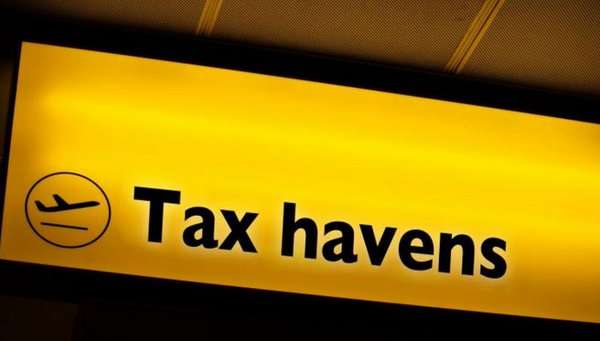Cayman and Bermuda: destinations for Fortune 500 subsidiaries

Offshore Shell Games 2017, a report by the US PIRG and the Institute on Taxation and Economic Policy, outlined the extent to which Fortune 500 companies are using offshore financial centres and as a result legitimately avoiding taxes in the US on trillions of dollars of profit.
Overall, multinational corporations use tax havens to avoid an estimated $100 billion in federal income taxes each year. Every dollar in taxes that corporations avoid must be balanced by higher taxes on individuals, less public investments and services and more federal debt.
This study explores how in 2016 Fortune 500 companies used tax haven subsidiaries to avoid paying taxes on much of their income. It reveals that tax haven use is now standard practice among the Fortune 500 and that a handful of the country’s biggest corporations benefit the most from offshore tax avoidance schemes.
Most of America’s largest corporations maintain subsidiaries in offshore tax havens. At least 366 companies, or 73 percent of the Fortune 500, operate one or more subsidiaries in tax haven countries.
The most popular tax haven among the Fortune 500 is the Netherlands, with more than half of the Fortune 500 reporting at least one subsidiary there.
Approximately 57 percent of companies with tax haven subsidiaries have set up at least one in Bermuda or the Cayman Islands — two particularly notorious tax havens. Despite the small size of their economies, American multinationals implausibly claim to have earned billions each year in these island nations. In fact, the profits that all American multinationals claimed to earn in Bermuda and the Cayman Islands totaled 18 times and 13 times each country’s entire yearly economic output, respectively.
In fact, a Congressional Research Service report found that American multinational companies collectively reported 43 percent of their foreign earnings in five small tax haven countries: Bermuda, Ireland, Luxembourg, the Netherlands and Switzerland. Yet these countries accounted for only 4 percent of the companies’ foreign workforces and just 7 percent of their foreign investments. By contrast, American multinationals reported earning just 14 percent of their profits in major U.S. trading partners with higher taxes — Australia, Canada, the UK, Germany, and Mexico — which accounted for 40 percent of their foreign workforce and 34 percent of their foreign investment.
Fortune 500 companies are holding more than $2.6 trillion in accumulated profits offshore for tax purposes. Just four of these companies, Apple, Pfizer, Microsoft and General Electric, account for a quarter of the total. Just 30 Fortune 500 companies account for 68 percent or $1.76 trillion of these offshore profits.
Only 58 Fortune 500 companies disclose what they would expect to pay in U.S. taxes if these profits were not officially booked offshore. In total, these 58 companies owe $240 billion in additional federal taxes. Based on these 58 corporations’ public disclosures, the average tax rate that they have collectively paid to foreign countries on these profits is a mere 6.1 percent, indicating that a large portion of this offshore money has been booked in tax havens. If we assume that the average tax rate of 6.1 percent applies to all 293 Fortune 500 companies with offshore earnings, they would owe a 28.9 percent rate upon repatriation of these earnings, meaning they would collectively owe $752 billion in additional federal taxes if the money were repatriated at once.

